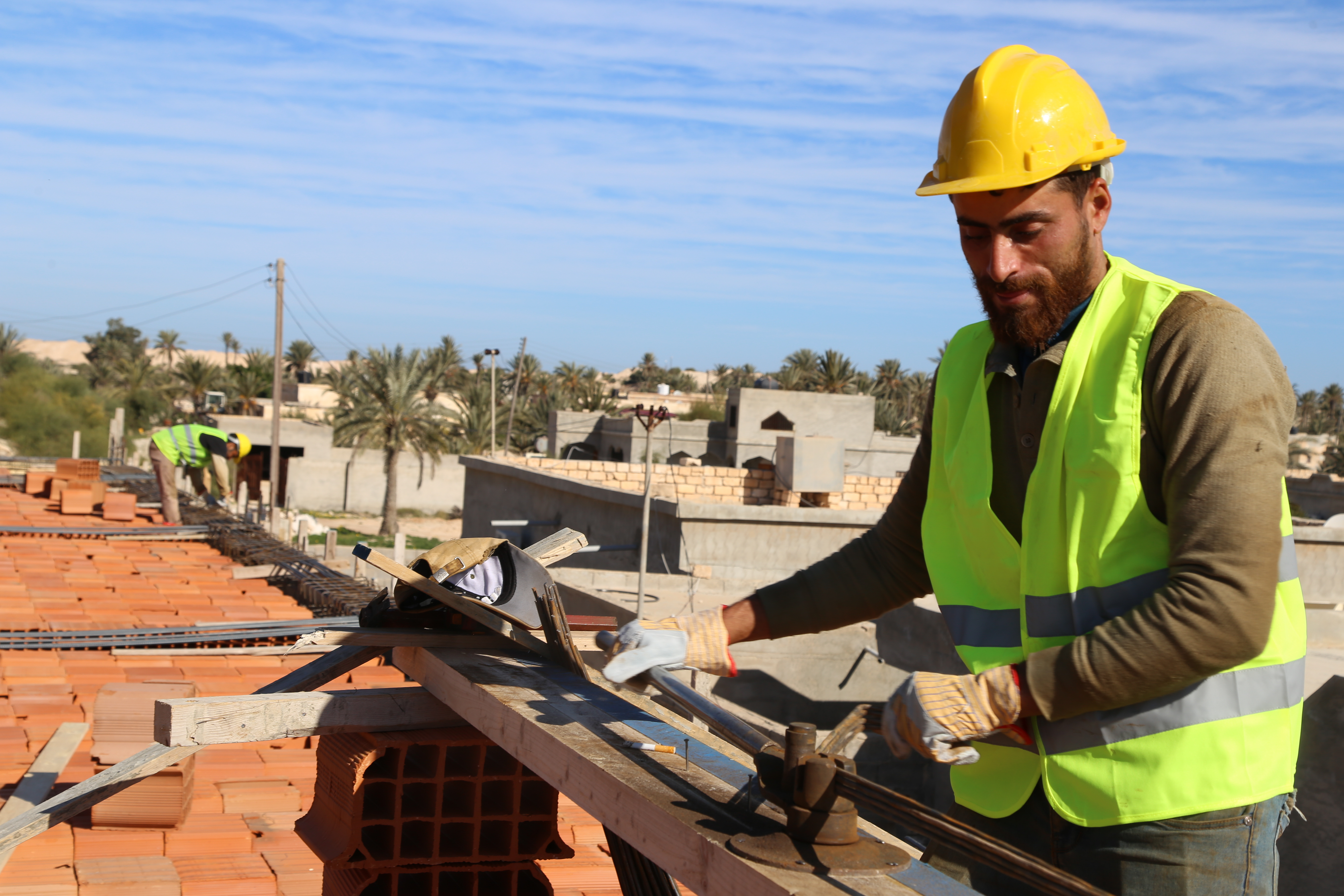Over 1.7 million people in 24 municipalities across Libya benefitted from better healthcare, education and infrastructure as part of the first phase of the EU-funded resilience initiative, implemented by UNDP. Photo: UNDP Libya
Within the framework of the EU Trust Fund for Africa, the European Union has backed with €18 million (US$ 19,861,200 million) a new phase of the United Nations Development Programme (UNDP) resilience project in Libya which aims at improving the living conditions of vulnerable populations in the municipalities most affected by conflict and by the new challenges posed by COVID-19 pandemic.
UNDP’s ‘Strengthening Local Capacities for Resilience and Recovery’ project is being implemented since 2017 with support from the EU and in coordination with the Ministry of Local Governance. So far, it has reached over 1.7 million people in 24 municipalities in the South, West, and East of the country.
People in six municipalities in Greater Tripoli (Hay Alandalus, Ain Zara, Abu Salim, Asbya, Assayeh, and Tripoli Center), Sabratha, Sebha, Benghazi, Kufra, Murzuq, Adjdabya, Khoms, Zawiya, Bayda, Maya and Mamoura, Zintan, Emsaed, Garabulli, Shweiref, Ghat and Tala, Janzor, Brak Achati and Qatroun, have now better access to health, education, energy and water and sanitation services through 10 health facilities, seven schools, five water and sanitation infrastructures, three sport and recreation centers, and an electrical substation rehabilitated; as well as through the provision of generators, ambulances, medical equipment, and sewage and garbage trucks among other equipment. All these activities have been implemented according to needs assessments and development plans agreed with the local authorities; supported with trainings and small grants for the maximum use of these resources, and backed with the creation of groups of peace actors, known as social peace partnerships, to ensure that the new resources do not create hostilities within the community but contribute to social cohesion.
The project has completed rule of law assessments in Tripoli, Sebha and Benghazi and conducted rule of law workshops in partnership with national authorities. The construction of the pilot model police station in Hai Andalus is ongoing to strengthen the police capacity and build trust with the community. Together with Tatweer Research, the project has reached over 3,000 young Libyans with business and IT skills trainings, and with Toyota Libya, it has trained 40 young Libyans, including internally displaced persons, on car maintenance, English and computer skills, hence, boosting their opportunities to find decent jobs and contributing to the creation of an entrepreneur ecosystem in Libya.
This new phase aims to contribute to a wide and balanced coverage across the whole country, supporting the following municipalities: Al Qala, Azahra, Aryayna, Baten Aljabal, Nalot, Qasr Akhyar, Mslata, Ghadames, Aljofra (including Alfogha and Sokna), Derj for the West, Idri Achati, Al Grefa, Bint Baya, Achargya for the South, Al Brega, Mrada, Tobruk, Tazerbo, Robyana, Jalu (including Jaghra, and Ojla), for the East. Additionally, Tripoli, Benghazi, Sabha, Kikla, Ubari, Tawerga, Zawara for livelihoods support.
The EU and UNDP partnership will help local authorities of the new targeted municipalities to deliver essential public services, improve social cohesion, and strengthen economic ad livelihoods opportunities for local population, in particular for the youth and vulnerable groups, including migrants, refugees and internally displaced persons.
During the coming three years, UNDP’s project will undertake civil works and deliver equipment targeting different sectors such as energy, water, sanitation, health, and education, conduct activities towards social cohesion and community security, and support local economic recovery and development, by enhancing livelihoods opportunities.
The Minister of Local Governance, Dr Milad Taher, stressed: “The comprehensive approach undertaken through the project with tangible results in enhancing basic services delivery, social cohesion and local economic development is well perceived by the Libyan communities. We welcome the expansion of this project to new areas and look forward to continuing our cooperation in building resilience of communities and sustaining recovery and development efforts in Libya.”
The Ambassador of the European Union to Libya, Mr. Alan Bugeja, stated: “UNDP is one of the main partners of the EU Emergency Trust Fund for Africa as we work together to improve the delivery of basic services in Libyan municipalities. Providing equal access to quality services, in particular for the most vulnerable people of the country, is key in light of the current COVID-19 crisis, as well as the EU’s broader commitment to peace in Libya through the Berlin process.”
UNDP Resident Representative in Libya, Mr. Gerardo Noto, said: “UNDP and EU are natural partners in Libya, sharing the same objectives for advancing peace and security, human rights, and the achievement of the Sustainable Development Goals in all corners of Libya. Built on the success that this partnership achieved with municipalities, such as Benghazi, Sebha, and Sabratha, the Ministry of Local Governance has entrusted us with supporting other communities that need also assistance to recover their economy and striking out again on the road to sustainable development. We will continue working hard to support people all around Libya.”

 Locations
Locations




